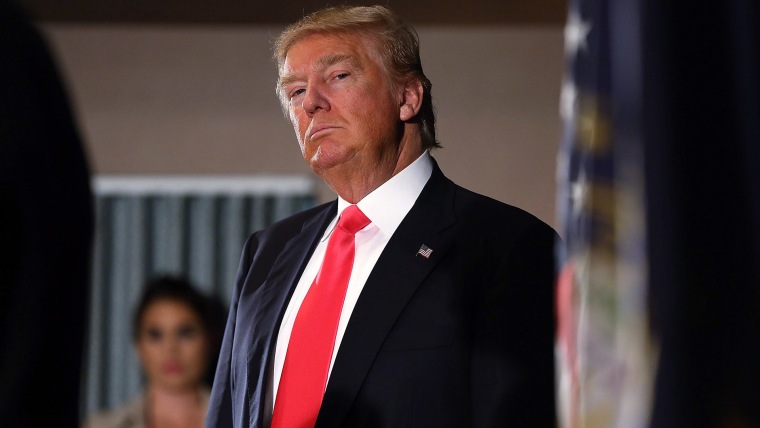The day after this week's Iowa caucuses offered a case study in the oddities of mainstream political analysis. I've been at this for a while, and even I spent much of the day shaking my head in disbelief.
If the buzz and hype are to believed, here's what we're supposed to believe: the Democrat who finished first in Iowa looked weak by winning, while her second-place rival looked impressive. The Republican who won wasn't particularly important -- even though he was expected to lose -- while the second-place finisher was the day's biggest "loser" and the candidate who finished third is taking a "victory lap," despite the lack of a victory.
For the punditocracy, all of this makes perfect sense.
There's no shortage of angles to this dynamic, but as the chatter grew louder yesterday, I found myself thinking more and more about Donald Trump's performance. MSNBC's Ali Vitali reported yesterday that the Republican spent the day complaining and licking his wounds.
Blaming the media for unfair coverage of what he called a "long-shot great finish" in the Hawkeye State, Trump began reminding people of an undercurrent that he said followed him throughout Iowa: He wasn't supposed to win there. Trump echoed the sentiment during his Monday night speech in Iowa, reiterating on Tuesday that it factored into his strategy on the trail. "Because I was told I could not do well in Iowa, I spent very little there -- a fraction of Cruz and Rubio," he wrote.
Look, some elements of this are simply undeniable. When one candidate leads in every poll, and then that candidate loses, there's a letdown. As Rachel explained on the show last night, "That's how these things go. You raise expectations that you're going to win, and you don't, you get bad press."
But while I'm usually not sympathetic to Trump's arguments, it's worth kicking around a contrarian idea: maybe he did pretty well in the Iowa caucuses?
Consider the race in a slightly different light: Donald Trump is a first-time candidate who's never run for any public office at any time in his life. He was appealing to conservative voters in a state he'd never visited, and which he'd publicly insulted -- on camera -- more than once. He was reaching out to a GOP base in Iowa that's dominated by evangelicals, whom he's struggled to relate to on any level.
Trump spent very little money in the state, had no meaningful ground operation or field team, held far fewer events than other competitive candidates, and invested almost no time in the kind of one-on-one retail campaigning than Iowans have come to expect.
It's against this backdrop that Trump came in second anyway, earning more support than the man the media has declared The World's Greatest Presidential Candidate.
Indeed, Michelle Goldberg noted in Slate yesterday, Trump also received "more votes than either of the last two winners of the Iowa Caucuses: 45,416, compared to 29,839 for Rick Santorum in 2012 and 40,841 for Mike Huckabee in 2008." Trump also won more votes than George W. Bush received in 2000, when the then-Texas governor won the Iowa caucuses.
Yes, Trump obviously lost, and his whining on Twitter yesterday didn't do him any favors. But looking at the Iowa results from a distance, is it crazy to think his second-place finish was actually quite impressive?
